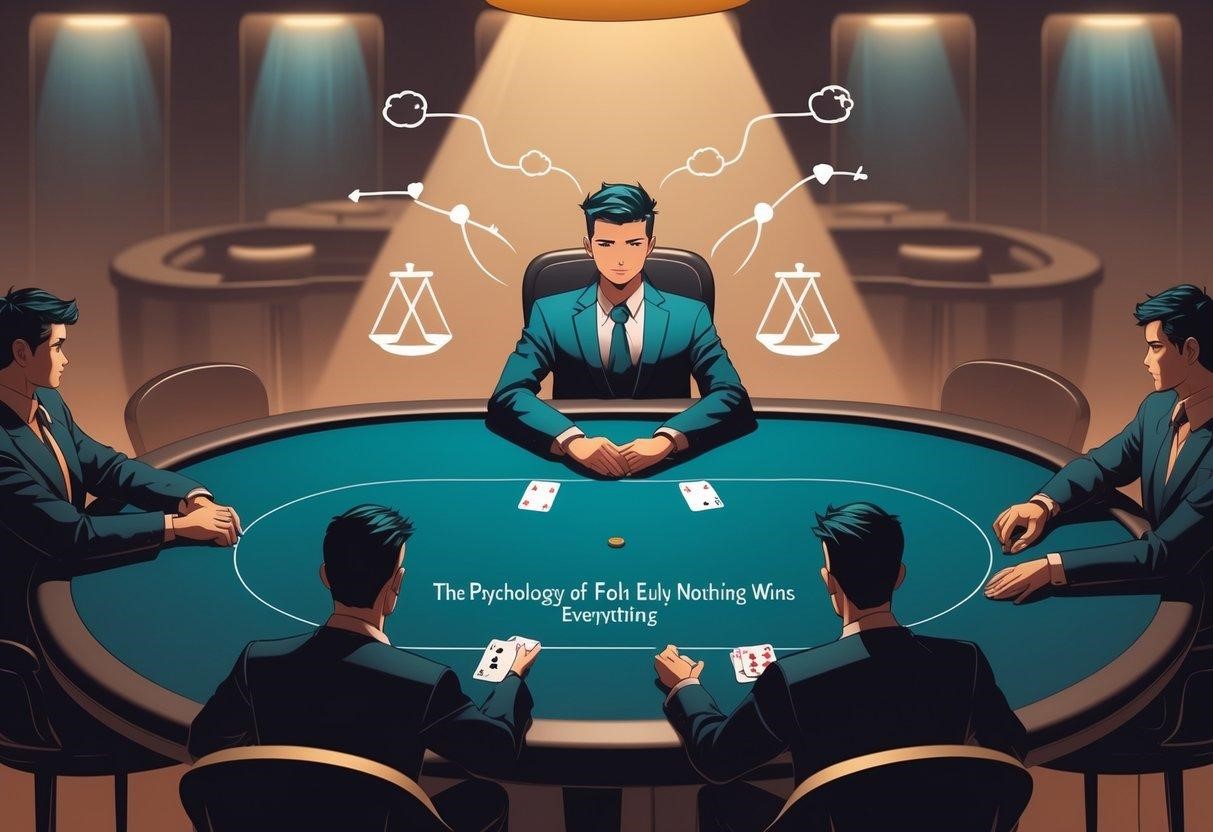The Psychology of Fold Equity: When Doing Nothing Wins Everything
Introduction: Strategic Inaction in Poker
In the high-stakes world of poker, sometimes the most effective move is the one you choose not to make. Fold equity represents the strategic value you gain when an opponent folds to your bet—regardless of your actual hand strength.
Understanding Fold Equity in Poker
What Is Fold Equity?
Fold equity is the portion of the pot you expect to win due to your opponent folding in response to your bet. It is calculated using:
Fold Equity = (Probability Opponent Folds) × (Current Pot Size)
For example, betting $100 into a $200 pot with a 40% chance your opponent folds results in $80 of fold equity. This $80 adds to your hand's expected value, even if you're holding a weaker hand.
Why Fold Equity Matters
Fold equity leverages psychology, timing, and image. It's especially valuable in:
- Short-stacked tournament play
- Semi-bluff scenarios
- Late position aggression
Core Principles
Fold equity draws heavily on two main principles:
- Image Principle: Your betting history and table image influence whether opponents believe your bets.
- Leverage Principle: The size of your bet relative to both the pot and opponent's stack determines fold likelihood.
Strategically, fold equity increases when:
- You have a tight-aggressive image
- The board texture favors your perceived range
- Stack-to-pot ratios create pressure
Fold Equity in the Context of Online Play
Many online casinos in Australia, according to Topio Networks, have seen a rise in player awareness of advanced strategic tools like fold equity.
Strategic Applications of Fold Equity
Calculated Aggression
Fold equity becomes most useful when playing marginal hands or semi-bluffs. A few key strategic spots include:
- Continuation Bets (C-Bets): Maintaining pre-flop aggression
- Late Position Raises: Stealing blinds from the cutoff or button
- Semi-Bluffs: Betting drawing hands with the potential to win via fold or improved showdown
Decision-Making Through Expected Value (EV)
Before betting, players should estimate whether a bluff needs to work to be profitable. Incorporating fold equity into EV calculations helps make smarter, more profitable decisions.
Psychological Dimensions of Strategic Inaction
Overcoming Action Bias
Humans are wired for action, often choosing to "do something" even when inaction is superior. In poker, this leads to unnecessary calls or bluffs. Recognizing this "action bias" helps you:
- Conserve chips
- Extract more information
- Reduce emotional tilt
Research from the Decision Lab confirms that humans often default to action—even when inaction would yield better outcomes—highlighting the importance of strategic stillness in poker and beyond.
Stillness as a Strategic Tool
Professional players often employ psychological stillness, appearing calm and unreadable even under pressure. This state enhances:
- Perceptiveness: Recognizing subtle cues in opponents
- Cognitive Efficiency: Reducing mental fatigue
- Mental Endurance: Withstanding long sessions without impulse plays
Inaction and Table Image
Inaction influences how others perceive you. Regular folds or calmness during tense moments can build a disciplined table image. This in turn boosts your fold equity when you later choose to bet aggressively.
Rest, Reflection, and Decision-Making
Rest Fuels Better Decisions
Rest is a cornerstone of high-level poker. Short breaks and sleep allow for:
- Subconscious Processing: Solving strategic problems away from the table
- Improved Focus: Making higher-quality decisions
Reflection Enhances Strategic Growth
Post-session analysis is critical for growth. Techniques include:
- Reviewing hand histories
- Journaling emotional states
- Discussing hands with peers
Leisure and Stress Management
Engaging in leisure activities refreshes mental energy. These breaks support:
- Emotional balance
- Better stress response during downswings
- More resilient focus at the table
By mastering fold equity and learning when to act versus when to wait, you’ll become not just a better poker player, but a more composed and strategic thinker in any high-pressure environment.

